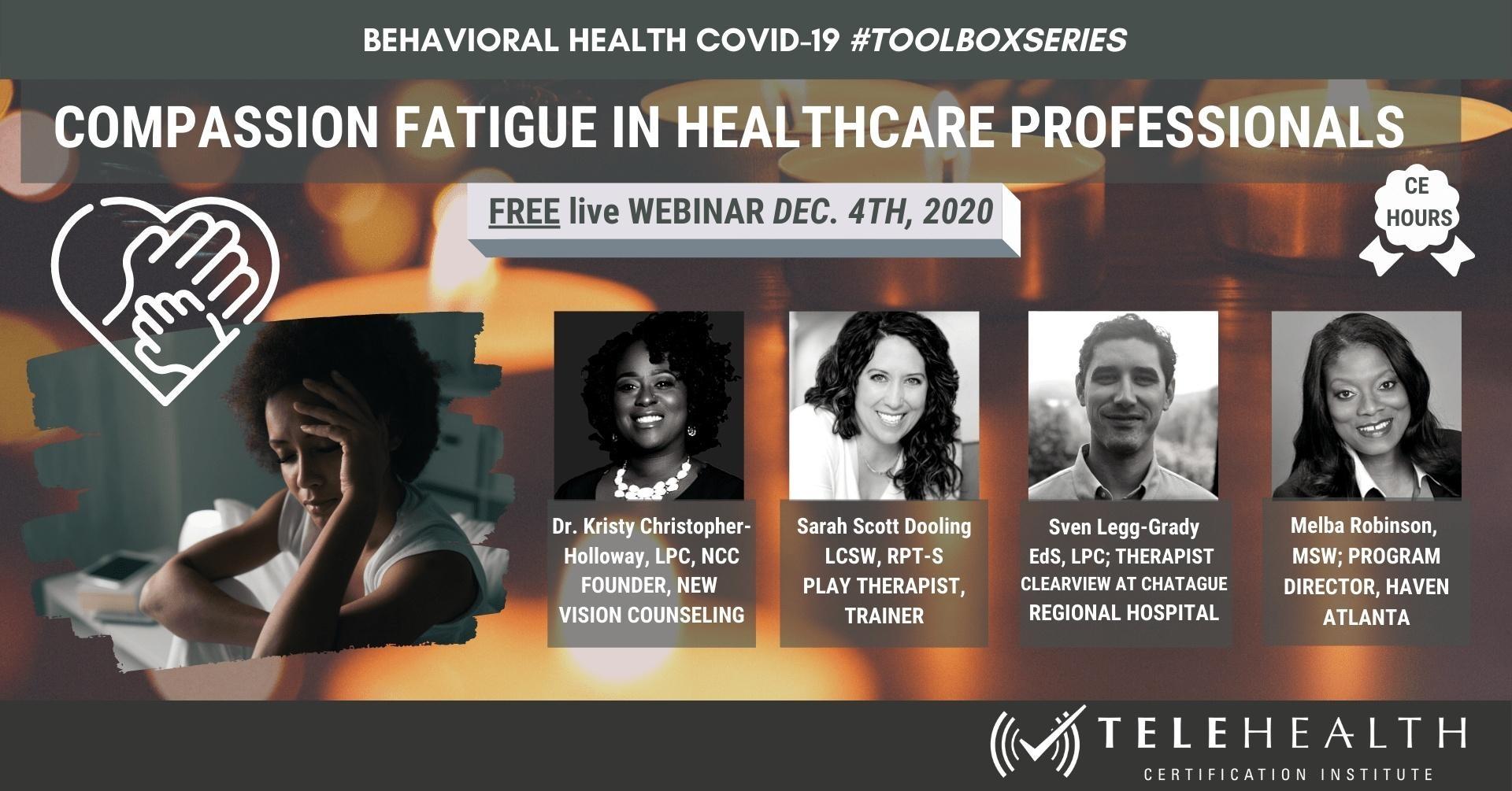Four mental health experts recommend ways to manage compassion fatigue and burnout for behavioral health professionals.
For our December installment of the Behavioral Health Toolbox Series, we covered a topic that is near-and-dear to many of us as we transition into 2021: compassion fatigue and burnout among healthcare professionals. The Telehealth Certification Institute Toolbox Series delivers live virtual webinars on telehealth topics facilitated by experts in the behavioral health field. Our webinars are practical, immersible, and driven by your interests.
Four panelists contributed to the December discussion. Sarah Dooling, a registered play therapist and instructor in San Diego State University’s MSW program, took an inventive approach to coping with pre-COVID triggers and current stressors. Sara advised practitioners to create a Resilience Kit with tools that will keep you well. Sara’s suggestion highlighted one of the webinar’s primary goals—optimizing creativity while creating new self-care routines. As Sara described for viewers, using transitional objects, such as a piece of paper with the names of your personal support squad, can act as a visual indicator.
Melba Robinson, the program director for Haven ATL and a service provider for trafficked survivors, highlighted signs of burnout and advice for combatting countertransference—a therapeutic process where counselors or other helping professionals misconstrue a patient’s emotional content. Melba recommended addressing these thoughts and feelings right away with a personal therapist, or with the client directly when appropriate. Remember that you have the right to say no—to clients and colleagues—when demands overtake your ability to work effectively.
Dr. Kristy Christopher-Holloway is a therapist at New Vision Counseling Center and an assistant professor at Lindsey Wilson College. As a specialist in minoritized women and birth trauma, Dr. Holloway gave viewers containment strategies for managing stress. Dr. Holloway revealed how burnout impairs ethical decision-making and can impact professional licensure. For her, wellness is about raising self-awareness. Self-care is most effective when viewed as a holistic process involving physical, social, spiritual, and mental domains. Dr. Holloway emphasized taking positive, practical action to manage stressors.
The final panelist, Sven-Legg Grady, is a Licensed Professional Counselor hailing from the north Georgia mountains. Sven is an intensive outpatient therapist who provided our viewers with tips on boosting energy within a group therapy environment. Sven pointed toward SAMHSA’s Creating a Healthier Life: A Step-By-Step Guide to Wellness, a roadmap that clients and clinicians can use to prioritize wellness goals. Having a trusted friend is another useful source of self-care accountability; but most of all, Sven believes that looking for progress—not perfection—is the best mentality for a satisfying counseling career.
In the full webinar recording, panelists recall must-have self-care resources that they’ve gravitated toward over the course of their careers. Almost all of the panelists felt that one of the best things that you can do is practice what you preach. Clinicians are invited to view the full webinar recording online for CE credit.
If you have any questions about our long list of educational offerings, or how to train as a telehealth practitioner, you can contact us at any time.




The course was so informative and I was glued to my screen for the entire duration. I received so much knowledge concerning ethics in telehealth and I am greatly encouraged to read about all the standards and policies that pertain to my practice. Thank you!.